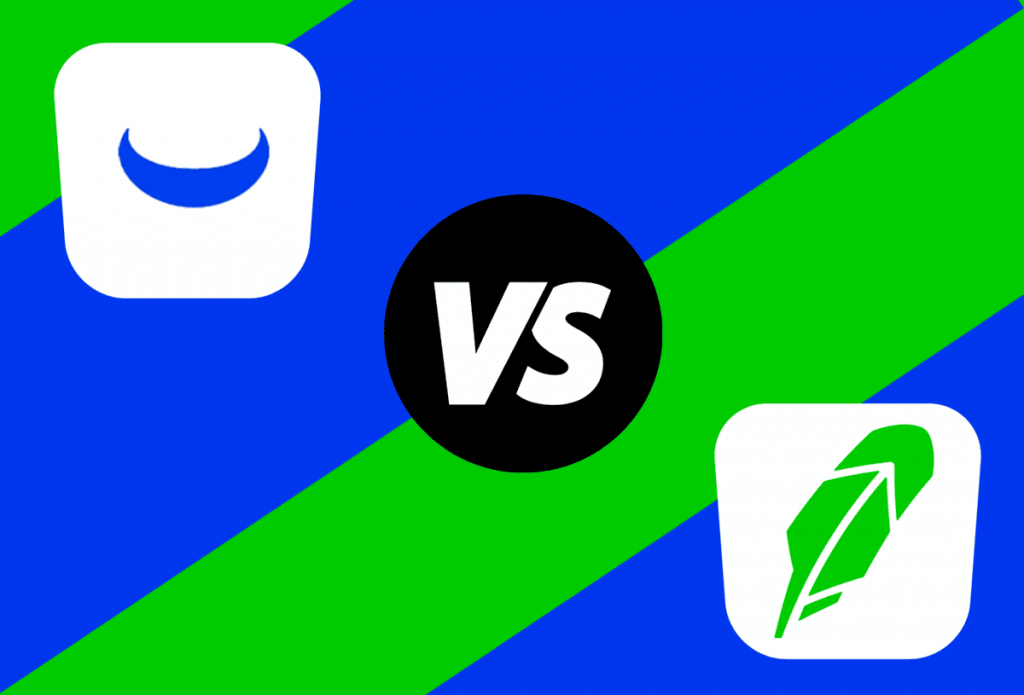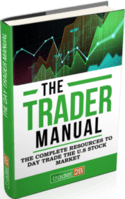Robinhood vs Webull: A Pros and Cons Comparative Review
Let’s put an end to this Webull vs Robinhood debate. If you want your money to work for you, then the stock market is one of the best places to invest it. But with so many online trading platforms offering no-commission trades, top-notch research, analysis tools, and more, the choices can be daunting. Two of the most popular choices in 2020 are Robinhood and Webull, but which one is going to give you the edge you need to come out on top? When it comes to choosing a trading platform, finding the right one for you can be overwhelming. So, we’ve broken down the pros and cons of each for you down below.
PROS & CONS
| Features | Robinhood | Webull |
| No fees per trade | Yes | Yes |
| No account minimum | Yes | Yes |
| Promotions | Yes; One free stock for new account owners | Yes; 4 free stocks for every funded account |
| Account fees | No; No annual, inactivity or ACH transfer fees. Optional Robinhood Gold subscription of $5/mo. | No |
| User-Friendly Interface (Desktop and Mobile) | Yes | Yes |
| Cash management Account | Yes, pays 0.3% back, debit card, free atm withdrawals | Yes, but offers no cashback |
| Margin Trading | Yes (for a $5 monthly subscription and a $2,000 minimum balance required per FINRA regulations) | Yes, ($2,000 minimum balance required per FINRA regulations) |
| Transaction-fee Mutual Funds and Bonds trading | No | No |
| Retirement Accounts | No | Yes |
| Customer Support | Yes, but limited to email and social media only | Yes, 24/7 phone, email, and in-app chat support |
| Robust Research and Tools | Yes | No |
What We Like:
Both Robinhood and Webull are well-known for their simplistic yet intuitive mobile user interface for traders on the go. But it’s Webull that really shines with highly customizable analysis tools on their desktop platform. Robinhood, however, has a more robust knowledge base for investment research. Though overall, they both offer a wealth of research and tools casual investors will need for trading. Either way, you can’t make a bad choice when it comes to usability.
Robinhood’s platform isn’t limited to just stocks, options, or ETFs. Robinhood is one of the few free-trading apps that allows investors to trade cryptocurrency in addition to over 250 global ADRs and fractional shares. Webull has yet to jump on the fractional shares train, but they do offer the option of retirement accounts in addition to the brokerage. Robinhood only offers brokerage, which is limiting to investors wanting to build and grow more long-term investment portfolios.
What We Don’t Like:
While both Robinhood and Webull allow cryptocurrency trading, their offerings are limited when compared to bigger brokers like Charles Schwab or Fidelity, who now offer free commission trading to keep up with the competition. Additionally, both platforms are limited with their security types like mutual funds and bonds, a necessity for most diversified long-term portfolios.
Robinhood also is offering 0.3% interest on its brokerage cash management accounts while Webull does not. But it’s Webull who has better customer service with 24/7 phone and email coverage available plus chat support in their mobile app. Robinhood only has email and social media customer support.
Which Platform is Right For You?
Beginner traders are going to love the wealth of research knowledge and ease of use Robinhood’s user-friendly UI brings to the table while more advanced investors relying less on research and more on customizable analysis tools and charts are going to prefer Webull’s almost overwhelmingly robust trading platform whether it’s on mobile or desktop.
While both of these platforms allow you to trade for free, your accounts with them will always be funded with your own money, and at your own risk. But with trader2B, there’s another way. Take their Toro Challenge, and they’ll offer you a funded trading account funded by trader2B, risk-free. Traders will get paid to learn and earn real world market experience with no risk. So, what are you waiting for? Click the link below to see if you’re up to the Toro Challenge and get started today. Here



